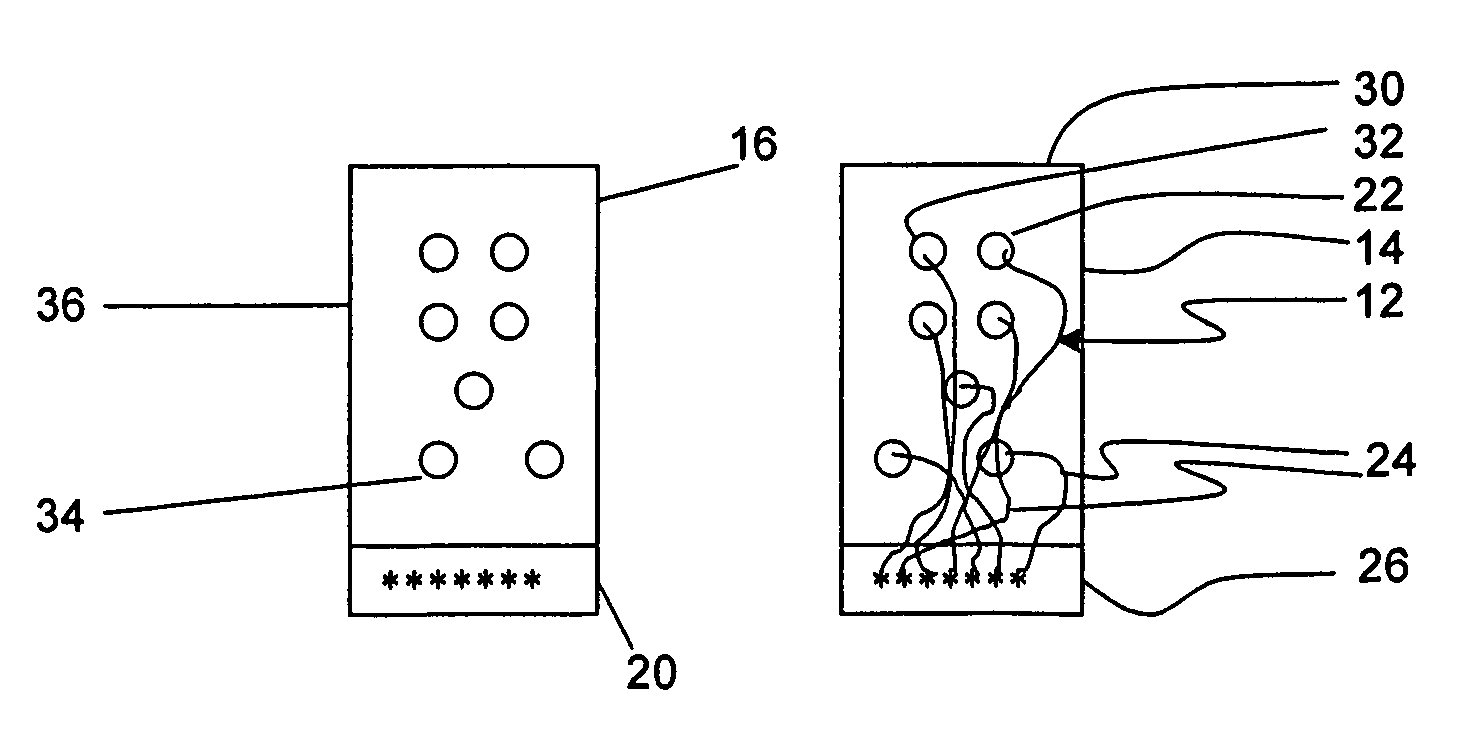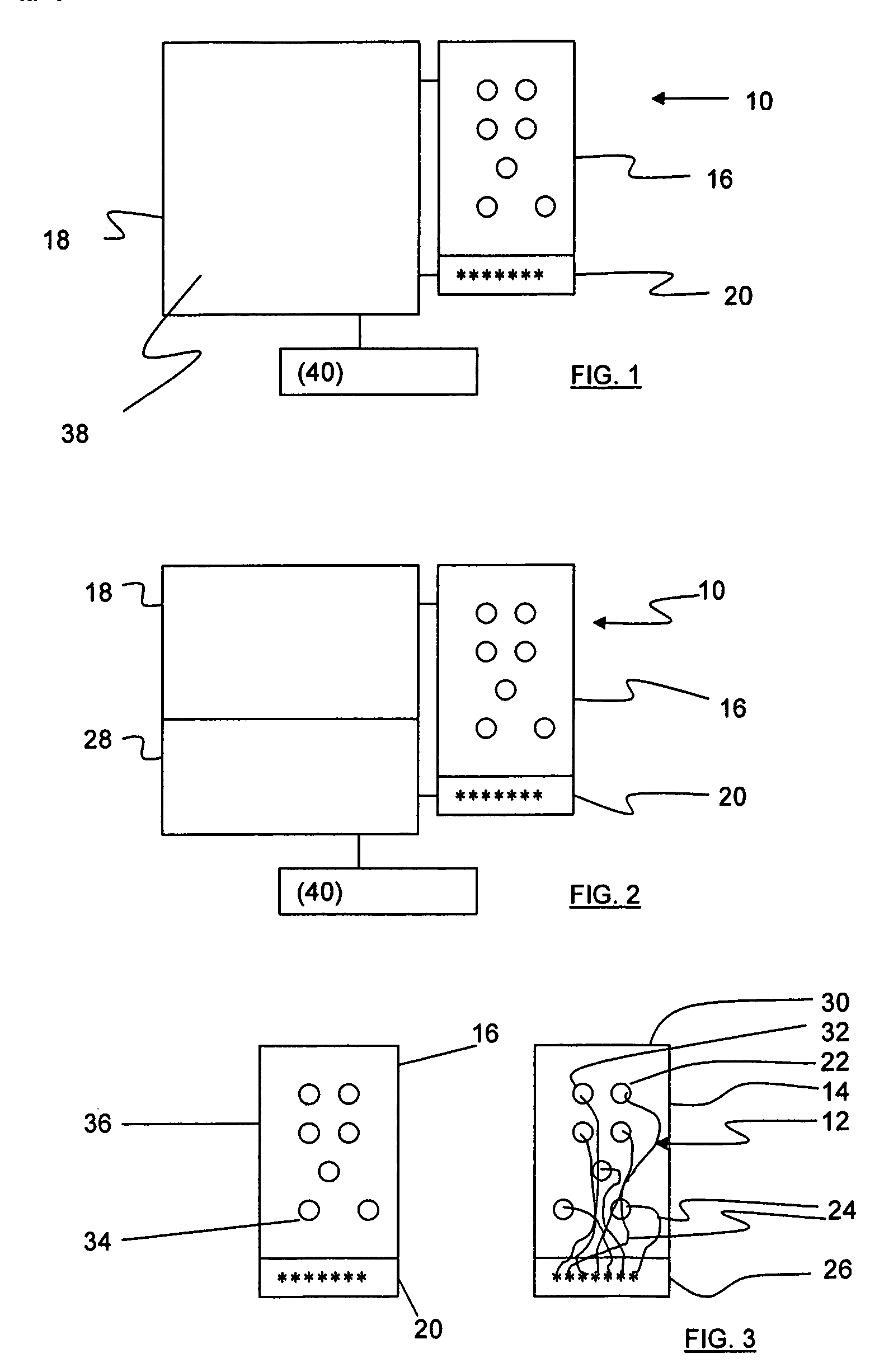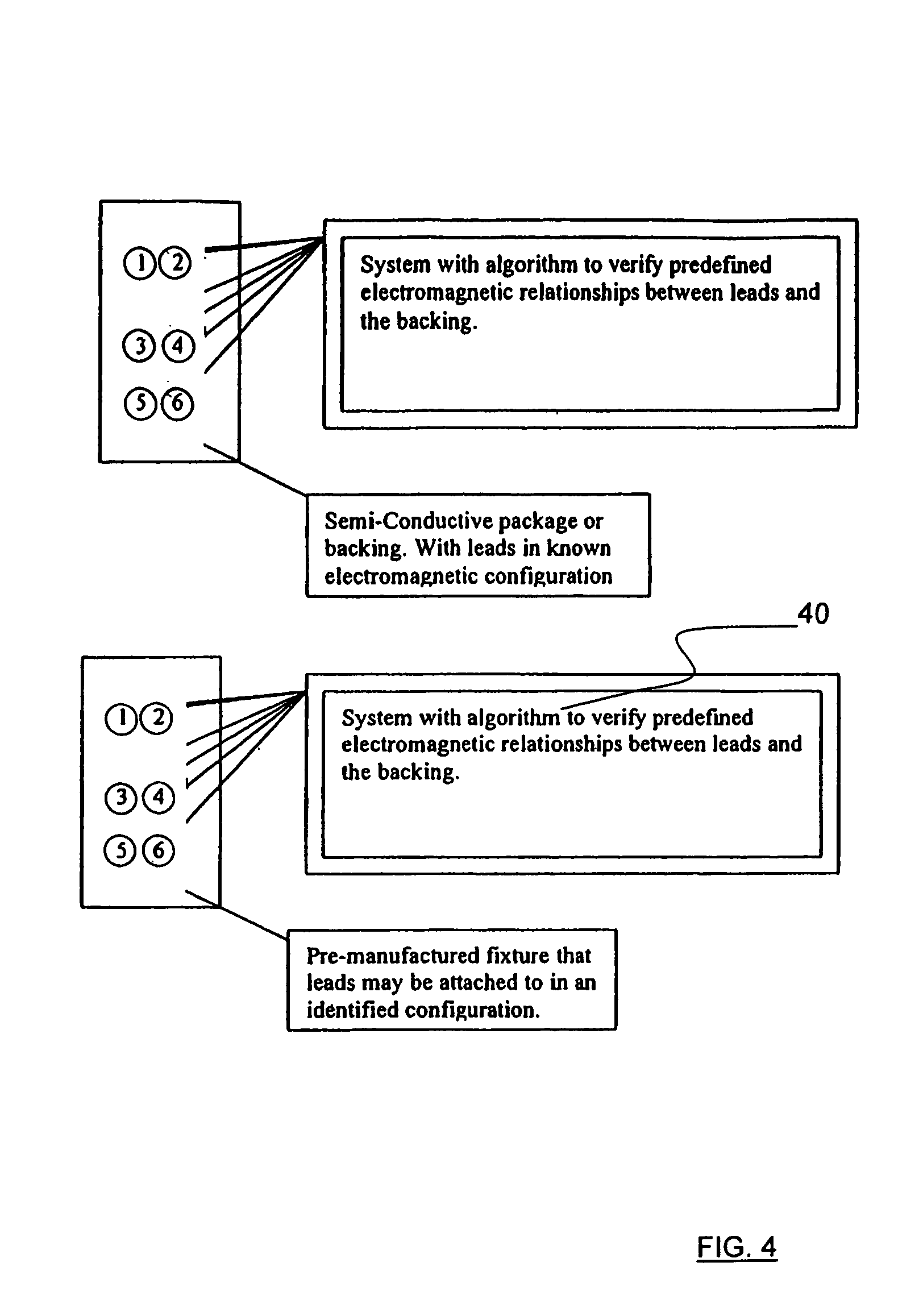Apparatus and method for detecting lead adequacy and quality
a technology of adequacy and quality, applied in the direction of heart stimulators, diagnostic recording/measuring, therapy, etc., can solve the problems of significant loss of sensitivity, significant differences, and relatively trivial expense, so as to preserve the integrity of leads, simplify the verification of leads, and preserve the sterility of leads
- Summary
- Abstract
- Description
- Claims
- Application Information
AI Technical Summary
Benefits of technology
Problems solved by technology
Method used
Image
Examples
Embodiment Construction
[0030]Referring to FIGS. 1 and 3, an apparatus 10 for detecting lead adequacy and quality in accordance with the present invention generally includes leads 12 enclosed in package 14, testing interface 16, testing subassembly 18 and connector interface 20.
[0031]Leads 12 may be any conventional testing, therapeutic or ablating leads. Leads 12 typically include a plurality of lead terminations 22, lead conductors 24 and connector 26. Lead conductors 24 may include electrical wires, other electrical conductors, or fiber optic wires for carrying electromagnetic radiation in the form of light (including visible light, infrared light and ultraviolet light.) Connector 26 is adapted to receive lead conductors 24 and to connect them to an appropriate testing instrument 28. Connector 26 includes appropriate electrical and / or optical connecting members.
[0032]Leads 12 may be used to sense or deliver signals that are electrical, magnetic or light energy related in character. Some examples of inst...
PUM
 Login to View More
Login to View More Abstract
Description
Claims
Application Information
 Login to View More
Login to View More - R&D
- Intellectual Property
- Life Sciences
- Materials
- Tech Scout
- Unparalleled Data Quality
- Higher Quality Content
- 60% Fewer Hallucinations
Browse by: Latest US Patents, China's latest patents, Technical Efficacy Thesaurus, Application Domain, Technology Topic, Popular Technical Reports.
© 2025 PatSnap. All rights reserved.Legal|Privacy policy|Modern Slavery Act Transparency Statement|Sitemap|About US| Contact US: help@patsnap.com



